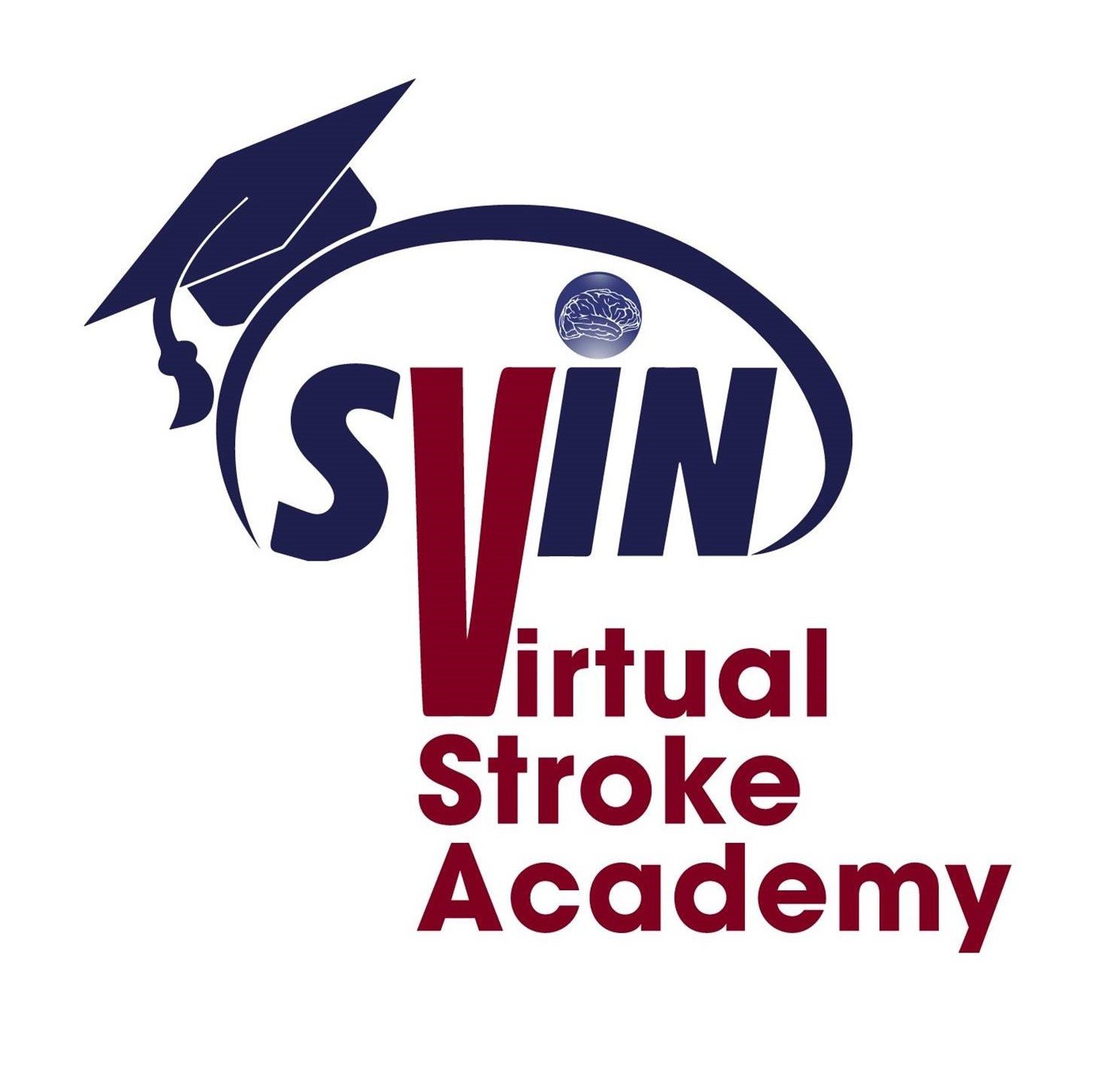The Society of Vascular and Interventional Neurologists (SVIN) is thrilled to offer numerous opportunities for members and non-members to enhance their understanding of important topics related to our unique field throughout the year. See what specialized learning opportunities we've created below to help you improve your practice and patient outcomes.
SVIN University - Virtual Stroke Academy (VSA) - $110,000
The SVIN-VSA (SVIN-VSA) seeks to develop and foster a virtual learning community with the following offerings:
-
Synchronously presented ‘deep-dive’ lectures providing a live platform where leading experts share knowledge and insights on fundamental and advanced topics of stroke and neuro interventional care. The Grand Rounds format fosters an interactive learning environment, where participants have the unique opportunity to engage directly with pioneers in the field, asking questions and participating in discussions in real-time.
Here is a list of Grand Rounds conducted so far and planned this year:
CONDUCTED -
2/27/24: Posterior Circ, Dr. Louis Caplan
1/30/24: MSUs, Dr. May Nour
12/13/23: IAT Approach, Dr. Dileep Yavagal
11/29/23: Thrombolysis, Dr. James Grotta
10/19/23: Acute Imaging, Dr. David Liebeskind
PLANNED -
3/24/24: NIHSS, Dr. Patrick Lyden
4/16/24: Dissection, Dr. ShadiYaghi
5/1/24: Brain-Heart, Dr. Luciano Sposato
6/12/24: CVT, Dr. Thalia Field
-
These will be designed to cover a broad spectrum of focused topics addressing clinical and conceptual questions, including but not limited to device usage, techniques, peri-procedural management, post-procedural care, and the intricacies of lab interpretation and anatomy. This will act as a resource for both refreshing knowledge and learning new information, enabling members to integrate the latest best practices into their daily clinical work. The flexibility of accessing these presentations at any time fosters a continuous learning environment that accommodates varied learning preferences and time constraints.
-
Case discussions will facilitate the dissection and discussion of complex stroke and neurointerventional cases in a multidisciplinary setting designed to mimic the dynamics of a real-world clinical team meeting, where participants share their perspectives, challenge assumptions, and collectively strategize the best approaches for patient care. This environment not only enhances clinical reasoning skills but also promotes a deeper understanding of the multifaceted nature of stroke management.
-
VSA will provide a structured platform for members to critically analyze and discuss recent publications in the fields of Vascular Neurology and Neurointervention. This collaborative setting encourages participants to delve into current research articles, dissecting methodologies, results, and implications for clinical practice. The goal is to foster a culture of evidence-based practice, where members can not only stay updated with the latest scientific advancements but also develop critical appraisal skills that are essential for navigating and implementing research findings in patient care.
-
VSA will pair less experienced members with seasoned experts, creating a structured yet flexible framework that encourages the sharing of knowledge, skills, and professional experiences. Through one-on-one interactions, regular feedback sessions, and goal-setting exercises, mentees will be guided through their learning journey, receiving personalized support and advice.
-
VSA will serve as a dynamic platform for members to exchange ideas, share experiences, and discuss the latest developments in Vascular Neurology and Neurointervention. These forums foster a supportive community of practice, where participants can seek advice, offer insights, and engage in professional dialogue.
-
Through a mix of formal presentations, panel discussions, and informal gatherings, participants can explore synergies, discuss innovative ideas, and form collaborative partnerships.
Advanced Stroke Emergency Support (ASES) - $20,000
These are self-paced online courses with 24/7 access, ACCME, ANCC, CAPCE Credits, CAPCE accreditation and providing a Certificate of Completion. They also have case study videos with 3D Animations
-
Target audience: Emergency Department personnel, Stroke Coordinators, ED RN's, other non-neurology Nurses and Physicians
Content: types of stroke & risk factors, detailed review of stroke triage in the emergency room, risk & benefits of iv alteplase, assessment for mechanical thrombectomy candidacy, transfer algorithms, methods to improve door to needle and door to device metrics times
-
Target audience: First Responders, Emergency Medical Technicians, Fire Fighters, Paramedics
Content: types of stroke & risk factors, prehospital triage, LVO detection scales, treatment options, bypass & transfer protocols
WebNIR - $7,500
WebNIR Tutorials are designed for residents, fellows in training, and faculty in the early stages of their careers and are available to SVIN members. The series offers tips and tricks on a variety of neuroendovascular techniques, including acute ischemic stroke, carotid artery disease, aneurysms, AVMs, and fistulas.

Ready to get started?
Contact the SVIN Sales Team to sponsor a WebNIR tutorial today!



